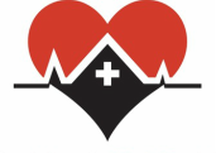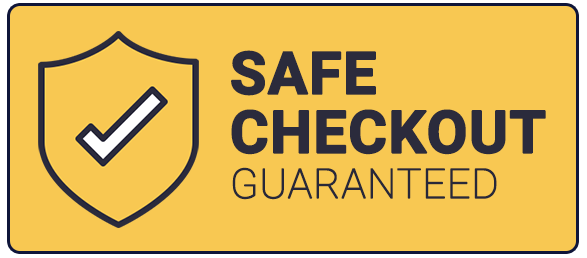Preparing for Nursing School 101Nursing is a rewarding profession for anyone looking to make a difference in the lives of others. However, before becoming a registered nurse, all nurses must be accepted too and complete nursing school. We have provided a few suggestions that may help you in the event that you are preparing for nursing school. It is important to know what to study, what to avoid, who to talk to, and how to use your time wisely. Below, we will give you a few suggestions. FIND THE TYPE OF NURSING SCHOOL YOU WANT TO ATTENDThere are a few different types of nursing degrees, each with a different trajectory to a nursing license. All degrees, however, give you the credentials you need to become an RN. The first choice is an associate’s degree, which allows you to become an RN without earning a bachelor’s degree. The second choice is a diploma program, which lasts two to three years and allows you to become an RN in less time than it would take to earn a bachelor’s degree. The final alternative is a bachelor of science in nursing (BSN) degree, which typically takes four years to complete and gives graduates the distinction of both a bachelor’s degree and a RN. STUDY ACCORDING TO STANDARDIZED TESTSAre you wondering what you need to study to be accepted to nursing school but don't know where to look? Preparing for the standardized test is always a good choice. Two of the most popular standardized tests are the Test of Essential Academic Skills (TEAS) and the National Council Licensure Examination (NCLEX) exam. The TEAS is Administered by ATI Nursing Education and covers the following topics: English language and usage, reading, science, and math. The TEAS must be taken prior to nursing school and many nursing programs use it as part of their application process. Subsequently, a good score on the TEAS can provide you with more options for nursing schools. Unlike the TEAS, the NCLEX is given to all prospective nurses who have earned their nursing degrees. The NCLEX is considered most important exam of any nurse’s career, as it determines whether he or she is ready to practice as an entry-level nurse. The NCLEX covers a wide range of materials taught in nursing school, so studying for it before school even begins is a great way to get ahead on your coursework. Complete YOUR PREREQUISITES AND CERTIFICATIONSAlmost all nursing programs require students to complete some type of prerequisites in order to enroll. These prerequisites can be completely different based upon the program so it’s best to check with your nursing school to see what is required. Nursing programs will have the application pre-requisites available on their websites and some of the common prerequisites include a high school degree, high school or college course experience in the biological sciences, math, and English speaking and writing proficiency. Additionally, there are also extra experiences, titles, and certifications which can allow your nursing school application to stand out from other applicants. For example, becoming a certified nursing assistant (CNA) can illustrate to nursing programs that you’re ready to do the work it takes to become a nurse. Additional lifesaving certifications are also recommended. Becoming certified in laymen rescuer CPR, BLS, and/or ACLS will show the nursing programs that you have dedication to learning life-saving techniques. Another suggestion is enrolling in ECG and Pharmacology. This course will not only prepare you for nursing school but also for ACLS and PALS which you may or may not choose to take prior to nursing school. Lastly, becoming a CPR instructor also is a great way to increase your confidence in your skills and help improve your public speaking. Do you still have more questions regarding nursing school? Our team at Help-A-Heart CPR is here to help. Contact us to have your nursing school-related questions answered and review our website to gain additional information on our lifesaving certification courses.
Comments
|
AuthorDr. Tracy A. Jones is the CEO of Help-A-Heart CPR, LLC and an American Heart Association, ASHI, and American Red Cross Master Program Trainer, Instructor, & AHA Faculty Member located in San Antonio, Texas. Archives
June 2024
Categories |
Help-A-Heart CPR, LLC | 1747 Citadell Plaza Suite 101 | San Antonio, Texas 78209 | (210) 380-5344 | [email protected]
Copyright © Help-A-Heart CPR, LLC 2024
100% Certification Acceptance
We promise your employer, school, or agency will accept the certification card we issue to you. If there is a question of acceptance or validity, simply send us an email at [email protected] with full details. We will reach out to the individual/entity and provide accreditation information. If still there’s a question, we will provide you with a full refund of your class fee. It’s that simple.
We promise your employer, school, or agency will accept the certification card we issue to you. If there is a question of acceptance or validity, simply send us an email at [email protected] with full details. We will reach out to the individual/entity and provide accreditation information. If still there’s a question, we will provide you with a full refund of your class fee. It’s that simple.
|
Communities Served
ALABAMA: Birmingham
ARKANSAS: Fayetteville, Hot Springs, Jonesboro, Little Rock NEW MEXICO: Albuquerque TENNESSEE: Knoxville TEXAS: Amarillo, Arlington, Austin, Bandera, Bastrop, Boerne, Brownsville, Comfort, Converse, Corpus Christi, Dallas/Ft. Worth, Del Rio, Dripping Springs, El Paso, Floresville, Fredericksburg, Georgetown, Harlingen, Houston, Junction, Katy, Kerrville, Kingsville, Kingwood, Laredo, Lubbock, Lufkin, McAllen, Midland, New Braunfels, Odessa, Pleasanton, Round Rock, San Angelo, San Marcos, Schertz, Seguin, Taylor, Temple, Texarkana, Tyler, Universal City, Victoria, Waco, The Woodlands |
Why Choose Help-A-Heart CPR?
1. Flexible Scheduling
2. On and Off Location Training Available 3. Casual, Fun Atmosphere 4. Best Price Guarantee 5. All Instructors are AHA and/or ARC certified 6. 5 Star Google Reviews 7. Blended Learning (Online & Skills Check) Available 8. Meets OSHA & College CPR Requirements 9. Get Certified Within 3-4 Hours 10.Certification Is Good For Two Years 11. Official AHA/ARC/ASHI Training Site 12. High Quality Safety Training! |








